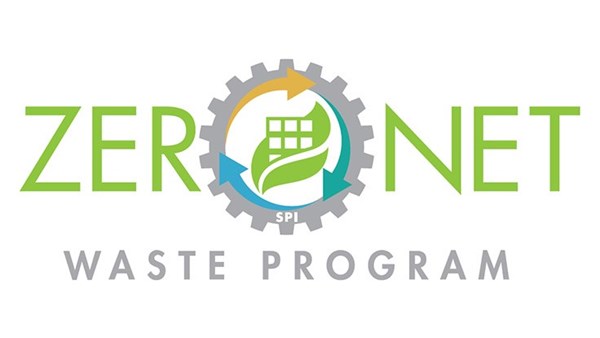The Minco Group Becomes SPI’s First Zero Net Waste Company
The company is projecting a revenue increase of approximately $20,000 for 2017 based on recycling efforts.
The company is projecting a revenue increase of approximately $20,000 for 2017 based on recycling efforts.
Injection molder and moldmaker The Minco Group, Dayton, has become a Zero Net Waste recognized company. SPI launched its Zero Net Waste program to acknowledge companies that have taken steps to eliminate waste in plastics manufacturing throughout the life cycle.
Lead by SPI’s senior director of recycling and diversion Kim Holmes, as well as SPI members, including suppliers, processors and recyclers, the Zero Net Waste program aims to reduce waste at every step in the life cycle. The self-reporting Zero Net Waste program requires companies to meet qualification and verification requirements that demonstrate their goals for pursuing zero waste. Companies are asked to submit information annually for ongoing verification, which allows companies to utilize the Zero Net Waste program logo.
Dan Norris, vice president of The Minco Group, encouraged employee participation in helping SPI to create and implement the Zero Net Waste program.
The Minco Group demonstrated leadership in landfill diversion and waste reduction through its efforts lead by Andy Brewer, program manager at All Service Plastic Molding (ASPM), a company owned by The Minco Group, to manage the Zero Net Waste program implementation. Under Brewer’s leadership, ASPM organized a Green Team, which leads the Zero Net Waste program at their facility. The team also monitors company progress, which to date has included:
- Diverting 88 percent of total manufacturing waste from landfill.
- Organizing a 24-hour sort of ASPM waste and categorizing materials into 26 categories.
- Decreasing landfill-bound waste weights by 46 percent.
- Projecting a revenue increase of approximately $20,000 for 2017 based on recycling efforts.
“I’ve been working with Kim Holmes’ Recycling Committee and knew that my company was capable of doing our part to make the industry more sustainable,” Brewer says. “I was able to get buy-in from my colleagues by organizing a 24-hour sort, in which they learned about all of the many recyclable materials we send to the landfill, in error, every day. From there, our Green Team, which manages our recycling efforts, was born. We are thrilled to be recognized by SPI and hope that our work helps make the business case for saving costs while saving the planet.”
SPI believes the Zero Net Waste program offers members the tools and resources to help them achieve their recycling and waste reduction goals.

Related Content
-
Fungi Makes Meal of Polypropylene
University of Sydney researchers identify two strains of fungi that can biodegrade hard to recycle plastics like PP.
-
Evolving Opportunities for Ambitious Plastics Recycler
St. Joseph Plastics grew from a simple grinding operation and now pursues growing markets in recycled PP, food-grade recycled materials, and customized post-industrial and post-consumer compounds.
-
BASF Highlighting How They 'Make, Use and Recycle Future Solutions'
NPE2024: BASF is using its proprietary computer-aided engineering tool Ultrasim when designing for sustainability in a broad range of industries.















